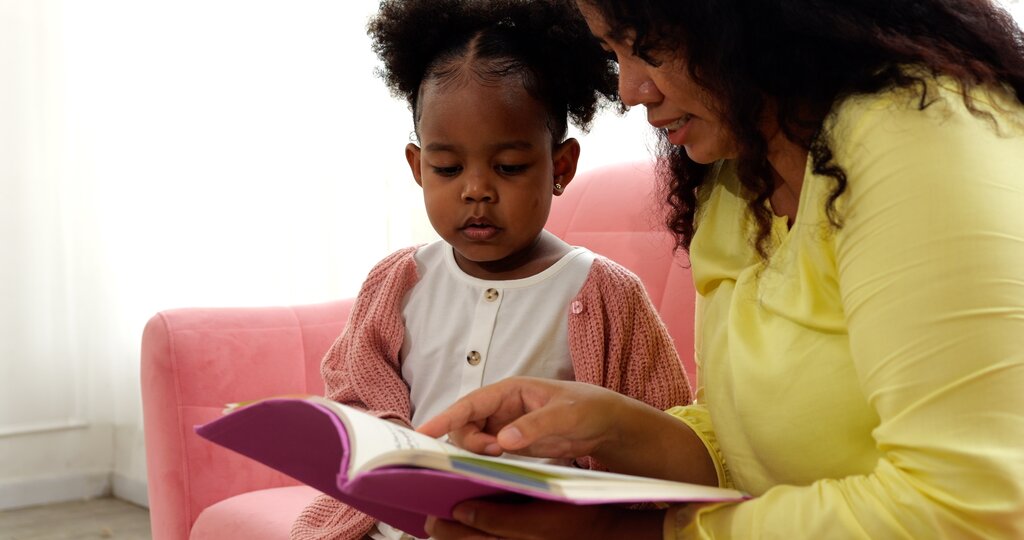Navigating the world of autism in children can be a challenging journey for parents. Whether you’re wondering, “is my kid autistic?” or you’ve just received a child autism diagnosis, explaining autism to kids is a vital step in the process. In this article, we will cover how to explain autism to your child in simple terms, tips for autism communication, and understanding autism spectrum disorder as a family.
When to tell your child they have autism
There is no one-size-fits-all answer for when to tell your child they have autism. However, it’s generally best to share this information when you feel your child is ready to understand the concept. This may be when they start asking questions about their differences, or when they begin to notice the unique challenges they face in comparison to their peers. Consider their emotional maturity and developmental stage, as well as the level of support they receive from their school, friends, and family members when deciding on the right time to have the conversation.
Come along with 200k+ families!
Explore the endless possibilities of learning!
Download for Free.
How to tell your child they have autism
When explaining autism to your child, there are many aspects of this conversation to prepare beforehand. It would be best to choose a calm and distraction-free environment. Be honest, direct, and age-appropriate in your explanation. Use simple words and phrases, focusing on their unique abilities and strengths. Encourage questions, offer support, and provide resources to help them better understand their diagnosis.
1. Choose the right time
Timing is everything when discussing sensitive topics like autism. It’s important to pick a moment when your child is relaxed and comfortable, free from distractions, and when both you and your child have enough time to have an open, unhurried conversation. This might mean waiting until a weekend or setting aside a special time in the evening when other family members are occupied and the atmosphere is calm.
2. Prepare what you’re going to say
Before explaining autism to your child, take some time to reflect on how you want to present the information. Consider the autism definition for kids, and think about the positive words you can use to describe autism. Remember to keep it simple and age-appropriate. Write down your thoughts or practice saying them out loud, so that you feel comfortable and confident in your delivery.
3. Keep it age-appropriate
Tailor your explanation to your child’s age and level of understanding. For toddlers with autism or preschoolers, use simple, concrete terms. As they grow older, you can provide more in-depth information about autism spectrum disorder. Be aware of their cognitive abilities and adjust your explanation accordingly to make it as relatable as possible.

4. Be honest and direct
When explaining autism, it’s essential to be honest and direct. This helps your child develop a sense of trust and understanding. Avoid sugar coating or downplaying the situation, as this can lead to confusion and misconceptions. Address any misconceptions they may already have about autism and ensure they have accurate information moving forward.
5. Use simple words and phrases
Explain autism in simple terms to make it easier for your child to understand. Use clear language and everyday examples to illustrate what you’re talking about. For instance, you could say, “Autism means that your brain works differently than other kids’ brains, and that’s okay.” Use analogies that are relevant to their interests, such as comparing different types of brains to different types of engines in vehicles.
6. Avoid using the word “disabled”
While discussing autism, try not to use the word “disabled” as it may have a negative connotation. Instead, focus on their unique abilities and strengths. Emphasize that everyone has different strengths and weaknesses, and that their autism is just one aspect of who they are as a person.
7. Reassure your child that they’re not alone
Let your child know that many other kids and adults have autism too . Share examples of successful people with autism and remind them that having autism doesn’t define who they are or limit their potential. Encourage them to connect with others who share similar experiences, either through local support groups or online forums, to help them feel a sense of belonging and acceptance.
8. Encourage questions and offer support
It is crucial that when you are explaining the diagnosis to your kid, give them the opportunity to ask questions and express their feelings about the diagnosis . Be patient and empathetic as they process the information. Offer reassurance and support, and let them know that you’re there for them, no matter what. This will help build trust and strengthen your bond as a family.
9. Follow up with resources and information
Provide your child with resources to help them better understand autism. Books, videos, and websites tailored for kids can be valuable tools for explaining autism in a way that’s easy to comprehend. Regularly check in with your child to see how they’re feeling about their diagnosis and offer additional resources as needed to foster their understanding and self-acceptance.

10. Provide examples of successful individuals with autism
Sharing stories of successful individuals with autism can help your child feel more positive about their diagnosis. By highlighting the achievements of people on the spectrum, you can inspire and motivate your child to see their autism as an opportunity to excel in their own unique way.
11. Emphasize the importance of self-acceptance and self-advocacy
Teach your child the importance of self-acceptance and embracing their unique qualities. Encourage them to be proud of who they are and to advocate for themselves when they need support or accommodations. By fostering self-confidence and self-advocacy, your child will be better equipped to navigate their journey with autism.
How to deal with your child’s reaction
Children may react differently to their autism diagnosis. Be prepared for a range of emotions, and don’t take their reactions personally. Respect your child’s feelings, offer support and understanding, and seek professional help if needed to ensure they can cope with and understand their diagnosis.
1. Be prepared for any reaction
Children may react differently to the news of their autism diagnosis. Some may feel relieved, while others may be upset or confused. Be prepared to handle a range of emotions, and be patient as your child processes this new information about themselves.
2. Don’t take it personally
Remember, your child’s reaction is not a reflection of you as a parent. It’s natural for them to have mixed feelings about their diagnosis. Give them time to process their emotions and adjust to the new information. Offer your support and understanding, without judgment or blame.
3. Respect your child’s feelings
Acknowledge and validate your child’s feelings, even if they are struggling with the news. Let them know that it’s okay to feel a range of emotions, and that you’re there to support them. Encourage open communication, and listen actively to their concerns and fears.
4. Offer support and understanding
Be patient, understanding, and compassionate as your child navigates their feelings about their autism diagnosis. Encourage open communication and offer your support as they adjust to this new aspect of their identity. Be available to listen, and be prepared to have ongoing conversations about autism as your child grows and develops.
5. Seek professional help if needed
If your child is struggling to accept or understand their autism diagnosis, consider seeking the help of a therapist or counselor who specializes in working with autistic children and their families. They can provide guidance and support to help your child better understand and cope with their diagnosis, as well as help you as a parent to better support your child’s needs.

6. Provide space and time for your child to process
Understanding that your child may need time to process their diagnosis is essential. Give them space and time to think about their feelings and emotions. They might want to be alone or spend time with friends, and that’s okay. Recognize their need for processing time and respect their wishes.
7. Encourage your child to express themselves creatively
Some children may find it difficult to express their emotions verbally. Encourage your child to express their feelings about their diagnosis through creative outlets, such as art, music, writing, or other activities they enjoy. This can help them process their emotions in a healthy way and provide you with insight into their thoughts and feelings.
Conclusion
Explaining autism to your child is an important step in helping them understand their unique strengths and challenges. By choosing the right time, being honest and direct, and offering support, you can foster open communication and understanding within your family. As you navigate the journey of autism together, remember that you’re not alone. There are many resources and support networks available to help both you and your child thrive. Keep the lines of communication open, stay positive, and embrace your child’s uniqueness as you grow together in understanding autism spectrum disorder.




